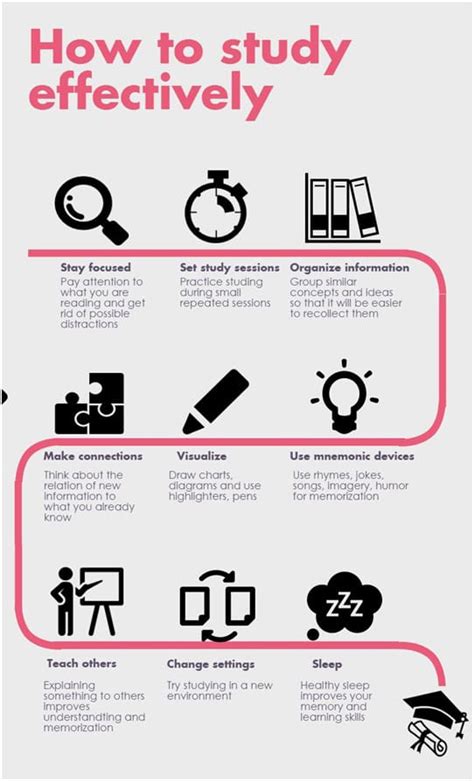How To Study Effectively: Proven Strategies for Academic Success
Are you struggling to study effectively? Do you feel overwhelmed by the amount of material you need to cover? Many students find studying a daunting task, but with the right strategies, you can transform your study sessions from frustrating struggles into productive learning experiences. This guide provides proven techniques to help you conquer your studies and achieve academic success.
Understanding Your Learning Style
Before diving into specific techniques, it's crucial to understand how you learn best. Are you a visual, auditory, or kinesthetic learner? Identifying your learning style allows you to tailor your study methods for optimal results.
- Visual Learners: Benefit from using diagrams, charts, mind maps, and flashcards. Highlighting key information in textbooks is also helpful.
- Auditory Learners: Prefer listening to lectures or audio recordings. Repeating information aloud and discussing concepts with others can improve retention.
- Kinesthetic Learners: Learn best through hands-on activities. Building models, writing notes, or using physical manipulatives can enhance their understanding.
Effective Study Techniques
Once you understand your learning style, you can implement these effective study techniques:
1. Active Recall: Test Yourself Regularly
Passive rereading is ineffective. Instead, actively test your knowledge. Use flashcards, practice questions, or teach the material to someone else. Active recall forces your brain to retrieve information, strengthening memory.
2. Spaced Repetition: Review Material at Increasing Intervals
Don't cram! Review material at increasing intervals. This technique leverages the spacing effect, improving long-term retention. Apps like Anki can automate spaced repetition.
3. Interleaving: Mix Up Subjects
Instead of focusing on one subject for hours, interleave different subjects. This improves your ability to discriminate between concepts and strengthens your overall understanding. Switching between related subjects can also prevent burnout.
4. Elaboration: Connect New Information to Existing Knowledge
Don't just memorize facts; connect new information to what you already know. Ask yourself how the new information relates to previous concepts. Create meaningful connections to enhance understanding and retention.
5. Time Management: Create a Realistic Study Schedule
Effective studying requires proper time management. Create a realistic schedule that allocates sufficient time for each subject. Break down large tasks into smaller, manageable chunks. Use a planner, calendar, or app to stay organized.
6. Find Your Ideal Study Environment
Minimize distractions. Find a quiet place with good lighting where you can focus. Experiment to discover what environment best suits your concentration needs. This could be a library, a quiet corner at home, or even a coffee shop.
7. Take Regular Breaks: Avoid Burnout
Studying for extended periods without breaks can lead to burnout and reduced effectiveness. Implement the Pomodoro Technique: study for 25 minutes, then take a 5-minute break. After four cycles, take a longer break.
8. Get Enough Sleep: Crucial for Memory Consolidation
Sleep is essential for memory consolidation. Aim for 7-9 hours of quality sleep each night. A well-rested brain learns and retains information much more effectively.
Optimize Your Study Habits for Success
By understanding your learning style and implementing these effective study techniques, you can significantly improve your academic performance. Remember that consistency and dedication are key. Experiment with different strategies to find what works best for you, and don't hesitate to seek help from teachers, tutors, or classmates when needed. Your academic success is within reach!
